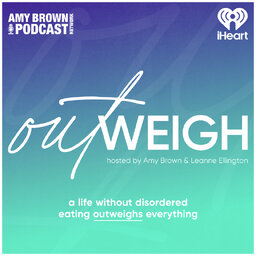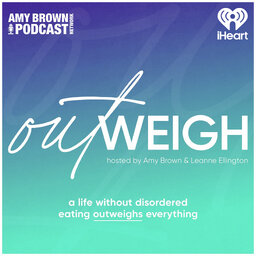Unhooking from Unrealistic Ideals: Guiding Teens to Find Their Own Path Rather Than Chasing Others’ Approval (Outweigh)
OUTWEIGH: In the final episode of our series, Leanne sits down with Natalie Borrell of Life Success for Teens to tackle one of the biggest pitfalls facing today’s youth: the constant battle for external validation. With social media, peer pressure, and cultural standards all shouting for attention, teens’ developing brains are especially vulnerable to body comparisons, perfectionism, and crippling self-doubt. In this episode, Natalie and Leanne break down how these external ideals can distort self-image and push teenagers toward dangerous habits with food and beyond.
They also share actionable strategies for flipping the script—focusing on inner growth, values, and resilience rather than the quick-fix highs of likes, followers, or fitting a narrow beauty standard. The result? When teens learn to stand in their own worth, the pull to “measure up” fades, and the need to chase approval through their body or appearance naturally loses its grip. If you want to see your teen thrive with genuine self-confidence, rather than frantic comparison-itis, don’t miss this conversation.
GUEST: Natalie Borrell // @lifesuccessforteens // lifesuccessforteens.com
HOST: Leanne Ellington // StresslessEating.com // @leanneellington
To learn more about re-wiring your brain to heal from the all-or-nothing diet mentality for good....but WITHOUT restricting yourself, punishing your body, (and definitely WITHOUT ever having to use words like macros, low-carb, or calorie burn) head on over to www.StresslessEating.com
In 2 playlist(s)
Outweigh
Outweigh aims to break the stigma around disordered eating and eating disorders. Hosts Amy Brown and…Social links
Follow podcast
Recent clips

"No One Knows I Have A Problem"
13:04

The Brain Science of Sugar Cravings (And How to Reclaim Control)
13:16

Breaking the Cycle of Broken Promises: Reclaiming Your Self-Trust
20:21
 Outweigh
Outweigh
